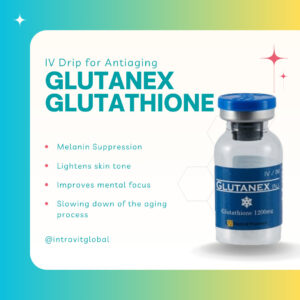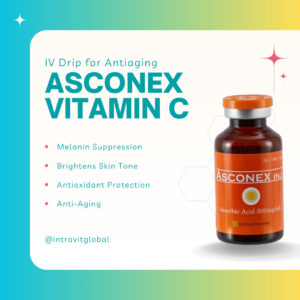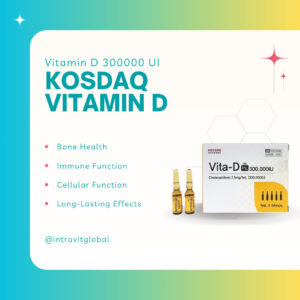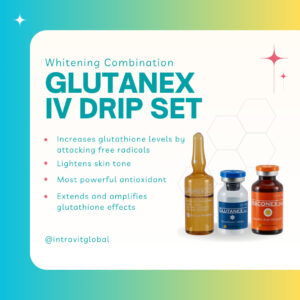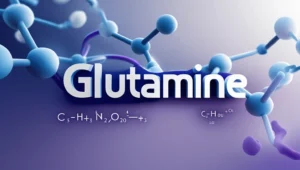How to Increase Your Vitamin C Absorption
Table of Contents

Introduction
Vitamin C, often hailed as a powerhouse nutrient, plays a crucial role in maintaining our overall health. From boosting the immune system to supporting collagen production and protecting against oxidative stress, its benefits are well-documented. However, while many people focus on getting enough Vitamin C, fewer consider how much of it is actually absorbed by the body. This article explores various strategies to increase Vitamin C absorption, ensuring you get the most out of this essential nutrient.
Understanding Vitamin C
What is Vitamin C?
Vitamin C, also known as ascorbic acid, is a water-soluble vitamin that the body cannot produce on its own. This means we must obtain it through our diet. It’s involved in several critical bodily functions, including the repair of tissues, enzymatic production of certain neurotransmitters, and immune system function.
Key Roles of Vitamin C in the Body
Vitamin C is vital for collagen synthesis, which helps maintain the integrity of our skin, blood vessels, and bones. It also acts as a potent antioxidant, neutralizing free radicals that can damage cells. Moreover, Vitamin C enhances the absorption of iron from plant-based foods, contributing to better blood health.
Common Sources of Vitamin C
Some of the best sources of Vitamin C include fruits like oranges, strawberries, kiwi, and guava, as well as vegetables like bell peppers, broccoli, Brussels sprouts, and spinach. Including these in your daily diet is a great way to meet your Vitamin C needs.
Factors Affecting Vitamin C Absorption
Role of the Digestive System
The absorption of Vitamin C begins in the small intestine, where it is absorbed into the bloodstream. However, several factors, such as the health of your digestive system, can influence how well Vitamin C is absorbed. Conditions like inflammatory bowel disease (IBD) or malabsorption syndromes can impair this process.
Impact of Dietary Habits
Your overall diet plays a significant role in Vitamin C absorption. A diet high in processed foods, sugars, and unhealthy fats can negatively impact absorption. On the other hand, a balanced diet rich in whole foods supports better nutrient uptake.
Influence of Age and Health Status
As we age, the efficiency of nutrient absorption can decline, making it more challenging to get enough Vitamin C. Additionally, certain health conditions and lifestyle factors, such as smoking or chronic stress, can also hinder Vitamin C absorption.
The Role of Bioavailability
What is Bioavailability?
Bioavailability refers to the proportion of a nutrient that is absorbed and utilized by the body. For Vitamin C, bioavailability can vary depending on several factors, including the form of the vitamin and the presence of other nutrients.
How Bioavailability Affects Vitamin C Absorption
Vitamin C is more bioavailable when consumed through whole foods rather than supplements. However, the form of Vitamin C in supplements can also affect bioavailability. For instance, liposomal Vitamin C is believed to offer higher bioavailability than standard ascorbic acid supplements.
Ways to Improve Bioavailability
To enhance the bioavailability of Vitamin C, it’s essential to consume it alongside other nutrients that support its absorption, such as bioflavonoids found in fruits and vegetables. Additionally, choosing the right form of supplementation can also make a difference.
Food Pairing for Better Absorption
Combining Vitamin C with Iron-rich Foods
One of the most effective ways to enhance Vitamin C absorption is by pairing it with iron-rich foods. Vitamin C helps convert iron into a form that is easier for the body to absorb, making this combination especially beneficial for those at risk of iron deficiency.
Pairing Vitamin C with Vitamin E
Vitamin E, another powerful antioxidant, works synergistically with Vitamin C to boost its effectiveness. Consuming these two vitamins together can enhance their absorption and antioxidant capabilities.
Avoiding Inhibitors of Vitamin C Absorption
Certain foods and substances can inhibit Vitamin C absorption. For example, excessive intake of alcohol, caffeine, and certain medications can reduce the amount of Vitamin C your body absorbs. It’s best to limit these when trying to increase your Vitamin C intake.
Best Time to Take Vitamin C
Importance of Timing for Vitamin C Intake
Timing can play a crucial role in how well Vitamin C is absorbed. Taking Vitamin C at the right time of day and under the right conditions can maximize its benefits.
Should You Take Vitamin C with or Without Food?
Vitamin C is water-soluble, meaning it can be taken with or without food. However, taking it with a meal may improve its absorption, especially if the meal includes fats, which can enhance the uptake of fat-soluble vitamins that work alongside Vitamin C.
Optimal Timing Throughout the Day
Splitting your Vitamin C intake throughout the day rather than taking it all at once can improve absorption. This method ensures that your body has a steady supply of the vitamin to utilize.
Forms of Vitamin C Supplements
Different Types of Vitamin C Supplements
There are several forms of Vitamin C supplements available, including ascorbic acid, ester-C, and liposomal Vitamin C. Each form has its unique properties and absorption rates.
Which Form is Best for Absorption?
Liposomal Vitamin C is often considered superior in terms of absorption because it encapsulates the vitamin in a lipid layer, allowing it to pass through the digestive system more effectively. Ester-C, a calcium ascorbate form, is also known for its enhanced absorption and gentler effect on the stomach.
How to Choose the Right Supplement
When selecting a Vitamin C supplement, consider factors like bioavailability, your digestive health, and any sensitivities you may have. Consulting with a healthcare provider can help you make an informed choice.
Dietary Practices to Enhance Absorption
Importance of a Balanced Diet
A diet rich in fruits, vegetables, lean proteins, and healthy fats supports overall nutrient absorption, including Vitamin C. Aim for a diverse diet to cover all your nutritional bases.
Including a Variety of Fruits and Vegetables
Eating a variety of Vitamin C-rich fruits and vegetables ensures that you receive not only Vitamin C but also other beneficial nutrients and bioflavonoids that enhance its absorption.
Reducing Processed Foods and Sugars
Processed foods and high sugar intake can impair nutrient absorption, including Vitamin C. Reducing these in your diet can improve your overall health and the efficiency of Vitamin C uptake.
Hydration and Vitamin C Absorption
Role of Water in Vitamin C Absorption
Staying hydrated is essential for optimal nutrient absorption. Water helps transport vitamins and minerals through the digestive tract and into the bloodstream.
How Staying Hydrated Supports Nutrient Absorption
Proper hydration ensures that your digestive system functions smoothly, aiding in the absorption of Vitamin C and other essential nutrients.
Impact of Gut Health on Absorption
Gut Health and Its Connection to Nutrient Absorption
A healthy gut is critical for effective nutrient absorption, including Vitamin C. An imbalanced gut flora can hinder the absorption process.
Probiotics and Their Role in Improving Vitamin C Uptake
Probiotics can improve gut health, leading to better absorption of vitamins like Vitamin C. Including probiotic-rich foods like yogurt, kefir, and fermented vegetables in your diet can support this process.
Maintaining a Healthy Gut Flora
A diet rich in fiber, prebiotics, and probiotics helps maintain a healthy gut flora, which in turn supports the absorption of Vitamin C and other nutrients.
Avoiding Factors That Inhibit Absorption
How Smoking Affects Vitamin C Levels
Smoking significantly reduces Vitamin C levels in the body due to increased oxidative stress. Smokers need a higher intake of Vitamin C to maintain adequate levels.
The Impact of Stress on Vitamin C Absorption
Chronic stress depletes Vitamin C levels in the body. Managing stress through relaxation techniques, exercise, and a healthy diet can improve absorption.
Foods and Substances That Reduce Vitamin C Absorption
Certain foods, like those high in phytates (found in grains and legumes), can inhibit Vitamin C absorption. Limiting these foods or consuming them separately from Vitamin C-rich foods can help.
Role of Physical Activity
Exercise and Its Effect on Vitamin C Levels
Regular physical activity can increase the body’s need for Vitamin C while also enhancing its absorption. Exercise induces oxidative stress, which increases the body’s demand for antioxidants like Vitamin C.
How Physical Activity Enhances Nutrient Uptake
Exercise improves circulation and overall metabolic function, helping to distribute and utilize nutrients more effectively, including Vitamin C.
Special Considerations for Different Age Groups
Children and Vitamin C Absorption
Children have different nutritional needs, and ensuring they get enough Vitamin C is crucial for their growth and immune function. A balanced diet rich in fruits and vegetables is key.
Adults and Specific Absorption Needs
Adults should be mindful of their Vitamin C intake, especially if they are exposed to high levels of stress or pollutants. Tailoring intake to lifestyle factors is important.
Elderly and Challenges with Vitamin C Absorption
As people age, the efficiency of nutrient absorption decreases. Elderly individuals may require higher Vitamin C intake or supplements to maintain adequate levels.
Consulting with Healthcare Providers
When to Seek Advice on Vitamin C Intake
If you are unsure about your Vitamin C intake or suspect a deficiency, it’s wise to consult with a healthcare provider. They can offer personalized advice based on your health status.
Possible Interactions with Medications
Vitamin C can interact with certain medications, such as blood thinners and chemotherapy drugs. Always discuss your supplement use with your doctor to avoid potential interactions.
Tailoring Vitamin C Intake to Individual Needs
Individual needs for Vitamin C can vary based on factors like age, health status, and lifestyle. Personalized advice from a healthcare provider can help you optimize your intake.
Conclusion
Optimizing Vitamin C absorption is essential for maximizing the benefits of this vital nutrient. By understanding the factors that affect absorption and implementing strategies like food pairing, choosing the right supplements, and maintaining a healthy lifestyle, you can ensure that your body gets the most out of the Vitamin C you consume.
FAQs
How much Vitamin C should I take daily?
- The recommended daily intake for Vitamin C is 75 mg for women and 90 mg for men, though this can vary based on individual needs.
Can too much Vitamin C be harmful?
- Excessive intake of Vitamin C, typically over 2,000 mg per day, can cause digestive issues like diarrhea and stomach cramps.
What are the symptoms of Vitamin C deficiency?
- Symptoms include fatigue, weakened immunity, easy bruising, and in severe cases, scurvy, which leads to gum disease and skin problems.
Does cooking affect Vitamin C levels in food?
- Yes, Vitamin C is sensitive to heat, so cooking can reduce its content in foods. Eating raw or lightly cooked fruits and vegetables is best.
Can I get enough Vitamin C from food alone?
- Yes, with a balanced diet rich in fruits and vegetables, most people can meet their Vitamin C needs through food alone.
-
Vitamin Drips
Glutanex Glutathione 1200mg IV Drip for Antiaging, Melanin Suppression, Antioxidant Skin Brightness Benefits
£20.00 – £120.00 Select options This product has multiple variants. The options may be chosen on the product pageRated 0 out of 5 -
Vitamin Drips
Asconex Vitamin C (Ascorbic Acid) IV Drip for Antiaging, Melanin Suppression, Antioxidant and Skin Brightness Benefits
£10.00 – £70.00 Select options This product has multiple variants. The options may be chosen on the product pageRated 0 out of 5 -
Vitamin Drips
Kosdaq Vitamin D 300000 IU Cholecalciferol per vial box of 10 ampoules
£20.00 – £140.00 Select options This product has multiple variants. The options may be chosen on the product pageRated 0 out of 5 -
Hot-Sale
Glutanex IV Drip Set, Whitening Combination Kit with Glutathione, Vitamin C, Lipoic Acid for Antiaging, Skin Brightness Benefits
£30.00 – £250.00 Select options This product has multiple variants. The options may be chosen on the product pageRated 0 out of 5 -
Vitamin Drips
Nexus Pharma’s ETHICAL Hycobal Vitamin B12 Hydroxocobalamin 5mg/2ml to Elevate Your Energy, Naturally
£25.00 – £175.00 Select options This product has multiple variants. The options may be chosen on the product pageRated 0 out of 5 -
Hot-Sale
Glutanex Glutathione 600mg IV Drip for Antiaging, Melanin Suppression, Antioxidant Skin Brightness Benefits
Rated 0 out of 5£60.00Original price was: £60.00.£50.00Current price is: £50.00. Add to cart
Checkout our Facebook Page and leave your review about our Health Care Products.

